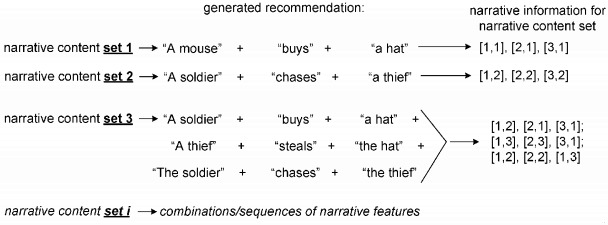Star Wars: Galaxy's Edge Is Going Full 'Westworld' With Branching Narratives
Okay, maybe not "full" Westworld – there probably won't be sex robots in Disney's family-friendly theme park. (Probably.)
But the Walt Disney Company has filed a patent that has people speculating about how they'll be using technology in Star Wars: Galaxy's Edge, the immersive and interactive new park land that opens next year. Read about the patent and how it could be incorporated into Galaxy's Edge below.
The Star Wars Galaxy's Edge Westworld Connection
Fan site WDWNT points us to the Walt Disney Company's patent for what they're calling a "Procedural System for Emergent Narrative Construction". They're essentially talking about branching narratives – creating multiple elements of a story that are chosen at random and trigger other reactions based on the order in which they appear. Here's a quote from the filed patent form:
A user interface may be presented to a creator to facilitate the creation of narrative content. The user interface may be part of a system configured to generate recommendations pertaining to narrative content. The narrative content is meant to be experienced by users, e.g., in a virtual space. Feedback and/or other responses from the creator may be used to train and/or modify the generation of new recommendations. Feedback and/or other responses from the users may be used to train and/or modify the generation of new recommendations.
Translation: Disney is creating a system that will tell a story to guests in a virtual space, one in which artificial intelligence could be employed to shape and refine the story each time it's told.
Here's an illustrated example from the patent:
What Does This Mean?
All of this is meant to result in an illusion that seems real and spontaneous. Just swap out "soldier" with "Stormtrooper" in that graphic above and you can start to see how this might work.
At first, I wondered if this meant that Disney would be creating full-size interactive Westworld-style robots to populate the park, but the patent says the story they're creating is meant to be experienced in a "virtual space". But this is a real life theme park, not a VR game. So what gives?
My guess is it has something to do with the lightsaber technology they're also developing for Galaxy's Edge. A few days ago, I wrote about plans for park guests to wear a helmet that displays characters (and lightsaber blades) in augmented reality. Drawing a line between that and this new patent leads me to believe Disney is working on developing virtual/augmented reality character narratives that would be visible through these helmets as you're walking around the park. Look one way, you might see a virtual character swipe a glass of blue milk from a vendor in the park. Look the other way, and you may see some Stormtrooper soldiers take notice of the theft and give chase, shooting their laser blasters as they take off out of sight after him.
Developing tech like this could result in a park that just has a bunch of guests wandering around paying more attention to the augmented reality narratives than to the actual, physical space in which they're walking (ie, a bunch of distracted, helmet-wearing fans bumping into each other). Another guess? These helmets are going to be extremely pricey, so only those willing to shell out some major space credits will be able to afford them. By essentially pricing people out of this experience, that would ensure a smoother physical experience for people in Galaxy's Edge. And it's not like Disney is above charging ridiculous sums of money for premium experiences.
It's also worth remembering that Walt Disney World uses technology called "magic bands," which are devices that guests wear on their wrists that store their credit card information, park tickets, etc. (You may recall seeing them in last year's The Florida Project.) Disney has been wanting to find ways to increase the use of those bands for years, so it's also possible that Galaxy's Edge visitors could have their story information tracked and stored in those bands. All a cast member or performer would have to do is scan it to learn where a guest is on the narrative timeline, and the story could pick up from there. There might even be hidden sensors that discreetly scan the bands and subsequently trigger certain events. The narrative (and augmented reality experience) could easily continue at the park's hotels, too.

